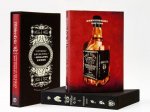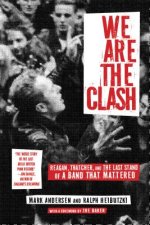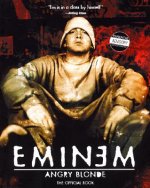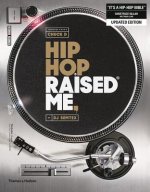
Kód: 04679946
White Boys, White Noise: Masculinities and 1980s Indie Guitar Rock
Autor M. Bannister
To what extent do indie masculinities challenge the historical construction of rock music as patriarchal? This key question is addressed by Matthew Bannister, involving an in-depth examination of indie guitar rock in the 1980s as ... celý popis
- Jazyk:
 Angličtina
Angličtina - Väzba: Brožovaná
- Počet strán: 228
Nakladateľ: Taylor & Francis Ltd, 2006
- Viac informácií o knihe

62.80 €
Dostupnosť:
50 % šanca Máme informáciu, že by titul mohol byť dostupný. Na základe vašej objednávky sa ho pokúsime do 6 týždňov zabezpečiť.
Máme informáciu, že by titul mohol byť dostupný. Na základe vašej objednávky sa ho pokúsime do 6 týždňov zabezpečiť.Prehľadáme celý svet
Mohlo by sa vám tiež páčiť
-

Watch of Nightingales
33.66 € -

Middle English Dictionary
58.27 € -

Continental Shelf
203.56 € -12 % -

New Developments in Calcium Signaling Research
154.03 € -12 % -

3. Schuljahr, Pupil's Book
16.26 € -

Ruled Britannia und Fait Accompli - Moegliche Invasionsszenarien in der britischen 'speculative novel' mit besonderer Berucksichtigung des Deutschland
53.33 €
Darujte túto knihu ešte dnes
- Objednajte knihu a vyberte Zaslať ako darček.
- Obratom obdržíte darovací poukaz na knihu, ktorý môžete ihneď odovzdať obdarovanému.
- Knihu zašleme na adresu obdarovaného, o nič sa nestaráte.
Informovať o naskladnení knihy
Zadajte do formulára e-mailovú adresu a akonáhle knihu naskladníme, zašleme vám o tom správu. Postrážime všetko za vás.
Viac informácií o knihe White Boys, White Noise: Masculinities and 1980s Indie Guitar Rock
Nákupom získate 154 bodov
 Anotácia knihy
Anotácia knihy
To what extent do indie masculinities challenge the historical construction of rock music as patriarchal? This key question is addressed by Matthew Bannister, involving an in-depth examination of indie guitar rock in the 1980s as the culturally and historically specific production of white men. Through textual analysis of musical and critical discourses, Bannister provides the first book-length study of masculinity and ethnicity within the context of indie guitar music within US, UK and New Zealand 'scenes'. Bannister argues that past theorisations of (rock) masculinities have tended to set up varieties of working-class deviance and physical machismo as 'straw men', oversimplifying masculinities as 'men behaving badly'. Such approaches disavow the ways that masculine power is articulated in culture not only through representation but also intellectual and theoretical discourse. By re-situating indie in a historical/cultural context of art rock, he shows how masculine power can be rearticulated through high, avant-garde, bohemian culture and aesthetic theory: canonism, negation (Adorno), passivity, voyeurism and camp (Andy Warhol and the Velvet Underground), and primitivism and infantilism (Lester Bangs, Simon Reynolds). In a related vein, he also assesses the impact of Freud on cultural theory, arguing that reversing binary conceptions of gender by associating masculinities with an essentialised passive femininity perpetuates patriarchal dualism. Drawing on his own experience as an indie musician, Bannister surveys a range of indie artists, including the Smiths, the Jesus and Mary Chain, My Bloody Valentine and the Go-Betweens; from the US, R.E.M., the Replacements, Dinosaur Jr, Husker Du, Nirvana and hardcore; and from NZ, Flying Nun acts, including the Chills, the Clean, the Verlaines, Chris Knox, Bailter Space, and the Bats, demonstrating broad continuities between these apparently disparate scenes, in terms of gender, aesthetic theory and approaches to popular musical history. The result is a book which raises some important questions about how gender is studied in popular culture and the degree to which alternative cultures can critique dominant representations of gender.
 Parametre knihy
Parametre knihy
Zaradenie knihy Knihy po anglicky The arts Music Music: styles & genres
62.80 €
- Celý názov: White Boys, White Noise: Masculinities and 1980s Indie Guitar Rock
- Autor: M. Bannister
- Jazyk:
 Angličtina
Angličtina - Väzba: Brožovaná
- Počet strán: 228
- EAN: 9780754651901
- ISBN: 0754651908
- ID: 04679946
- Nakladateľ: Taylor & Francis Ltd
- Hmotnosť: 368 g
- Rozmery: 157 × 232 × 15 mm
- Dátum vydania: 22. September 2006
Obľúbené z iného súdka
-

Elvis and Me
8.64 € -24 % -

Just Kids
12.96 € -24 % -

The Long Hard Road Out Of Hell
15.33 € -21 % -

I'm with the Band
14.92 € -19 % -

Scar Tissue
12.35 € -23 % -

True Norwegian Black Metal: We Turn in the Night Consumed by Fire
51.17 € -16 % -

Official Truth, 101 Proof
16.26 € -19 % -

Cambridge Companion to Opera Studies
34.90 € -4 % -

Singing, Acting, and Movement in Opera
33.66 € -

Substance: Inside New Order
12.35 € -23 % -

Aphex Twin's Selected Ambient Works Volume II
12.86 € -22 % -

Ultimate Jazz Fake Book
49.31 € -4 % -

Pink Floyd: the Wall
28.92 € -2 % -

Dirt
25.01 € -13 % -

Clothes, Clothes, Clothes. Music, Music, Music. Boys, Boys, Boys.
12.35 € -23 % -

Footprints
16.67 € -

We Are The Clash
18.73 € -13 % -

Moonwalk
12.86 € -11 % -

Complete Preludes, Nocturnes & Waltzes
20.38 € -16 % -

Lords Of Chaos - 2nd Edition
19.55 € -17 % -

The Dirt - Mötley Crüe
17.70 € -6 % -

Real Book
47.46 € -7 % -

A Perfect Union of Contrary Things
17.91 € -17 % -

It's So Easy (and other lies)
12.35 € -23 % -

Slash: The Autobiography
11.42 € -24 % -

No One Here Gets Out Alive
9.77 € -7 % -

M Train
12.86 € -24 % -

David Bowie
11.21 € -23 % -

Angry Blonde
12.35 € -23 % -

Hip Hop Raised Me (R)
36.96 € -13 % -

Dancing The Dream
27.59 € -23 % -

Scales and Finger Exercises
12.35 € -

I Am Ozzy
13.27 € -24 % -

Metalion: The Slayer Mag Diaries
42.10 € -18 % -

Total F*cking Godhead
23.36 € -21 % -

Jazz Theory Book
57.76 € -10 % -

Jazz Piano Book
43.75 € -10 % -

Jimmy Page by Jimmy Page
52.81 € -13 % -

Eric Clapton: The Autobiography
12.35 € -23 % -

David Bowie Is
44.99 € -9 % -

Beatles Gear
50.45 € -17 % -

Whatever You Say I Am
13.38 € -23 % -

How to Rap 2
11.73 € -18 % -

Burning Britain
23.78 € -19 % -

Queen Unseen - My Life with the Greatest Rock Band of the 20th Century: Revised and with Added Material
12.35 € -23 % -

My Dearest Father
3.59 € -24 % -

Lifting Shadows The Authorized Biography of Dream Theater
27.79 € -

Does the Noise in My Head Bother You?
11.21 € -23 % -

Paganini: Twenty-Four Caprices for the Violin, Op. 1
12.04 € -3 %
Osobný odber Bratislava a 2642 dalších
Copyright ©2008-24 najlacnejsie-knihy.sk Všetky práva vyhradenéSúkromieCookies


 21 miliónov titulov
21 miliónov titulov Vrátenie do mesiaca
Vrátenie do mesiaca 02/210 210 99 (8-15.30h)
02/210 210 99 (8-15.30h)